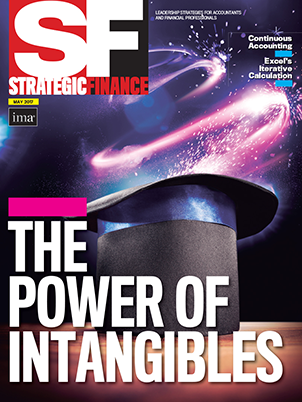In his seminal work, Good to Great, Jim Collins identified talented leaders as key drivers of exceptional business performance. Known as Level 5 Leaders, these individuals have not only exemplary technical competence, visionary thinking, and flawless execution skills, but also considerable personal humility and a strong professional will. They show high emotional intelligence and are focused, confident, and self-aware. Level 5 Leaders also don’t shy away from asking for help when it’s needed.
How can we develop ourselves to become such leaders? Stepping back and doing nothing—at least for a few minutes every day—may very well be the answer. I’m referring to mindfulness, a type of meditation that involves paying attention to the present moment on purpose, nonjudgmentally, and dispassionately. Mindful meditation is a popular, effective tool applied in leadership development circles.
MEDITATION'S CHAMPIONS
A.G. Lafley, former president and CEO of Procter & Gamble (P&G), who once said, “You cannot out-work a problem; you have to out-meditation it,” is a strong proponent of mindfulness. So it’s no surprise that mindfulness is a key component of P&G’s leadership development initiatives.
Bill George, former CEO of Medtronic and a Harvard Business School professor, is regarded as one of today’s most respected business thinkers. George, who has been meditating since 1974, said that meditation has helped him focus on what is important, think more clearly about critical decisions, and come up with his most creative ideas.
Google and Apple, undoubtedly two of the most innovative companies of our times, seem to be strong believers in mindfulness and its positive impact. Steve Jobs was known to believe in mindful meditation, which he referred to as “mind technology,” as a way to reduce stress and sharpen creativity and intuition. Jobs said that, through meditation, “you see so much more than you could see before.” Because of this, Apple allows its employees to meditate up to 30 minutes per day, providing them access to dedicated meditation rooms.
Chade-Meng Tan, Google employee number 107 and former head of personal growth, is a pioneer in bringing meditation practice to Google, which offers the Search Inside Yourself (SIY) meditation program to its employees. With a waitlist running up to six months, it’s one of the most popular employee development programs at Google, with attendees reporting improvements in empathy, emotional intelligence, ability to manage stress, and overall happiness levels. SIY Leadership Institute (SIYLI) now offers the same program to other corporations. SAP, one of SIYLI’s clients, uses this program to develop stronger leaders. Other notable companies that have embraced mindful meditation in some form include Nike, HBO, Aetna, McKinsey, and Deutsche Bank.
BENEFITS FOR LEADERS
Numerous scientific studies conducted by well-regarded researchers and organizations prove that regular meditation practice permanently alters the brain. According to “Mindfulness practice leads to increases in regional brain gray matter density,” a study published in Psychiatry Research: Neuroimaging, meditation changes the gray matter composition of the brain, increasing its concentration in brain regions involved in learning and memory processes, emotion regulation, self-referential processing, and perspective taking. Another study by UCLA’s Laboratory of Neuroimaging, “Neural Effects of Mindfulness/Contemplative Training,” published in Frontiers in Human NeuroScience, finds that meditation aids gyrification, the folding in the brain cortex that has a positive correlation with the brain’s ability to process information, make decisions, form memories, and so forth.
Further, empirical studies link practicing mindfulness to various traits desired for success as a leader. Research conducted by INSEAD researchers, “Debiasing the mind through meditation: mindfulness and the sunk-cost bias,” published in Psychological Science, found that practicing mindful meditation 15 minutes per day can make you a more rational thinker, eliminate biases, and provide better perspective, which in turn results in better decisions. Leiden University demonstrated in the article “Meditate to create” that meditation also aids in creative problem solving.
WHERE TO START
Mindful meditation involves sitting still and quiet, preferably with eyes closed and focusing on your breath without allowing your mind to wander. Of course, this is easier said than done. Our minds are like wild beasts, and training them to focus is a tough task. Numerous books and meditation guides explain the basic principles of the practice and how to follow them. A few favorites are Get Some Headspace by Andy Puddicombe; Mindful Leadership: The 9 Ways to Self-Awareness, Transforming Yourself, and Inspiring Others by Maria Gonzalez; and Search Inside Yourself by Chade-Meng Tan. You can use one of these to start your practice. Also, there are numerous meditation apps, such as Headspace, Calm, Buddhify, and Sattva, which are becoming increasingly popular and provide guided and unguided meditation sessions at various levels.
You can also join local meditation groups or even go on a meditation retreat. And you can participate in specialized mindfulness-based leadership development programs. Search Inside Yourself Leadership Institute and Institute for Mindful Leadership are two well-known organizations conducting such programs. It’s prudent to start small and be consistent; allocate 10 to 15 minutes of time each day for the practice and gradually increase it. A mindfulness practice requires time, commitment, patience, and perseverance. But once you master it, mindfulness can become an important component of your leadership development toolbox. Happy meditating!
IMA LEADERSHIP ACADEMY
The IMA® Leadership Academy provides leadership opportunities for all members. From leadership assessment to leadership courses offered in person as well as through WebEx to participation opportunities in mentoring, be it reverse or traditional, the IMA Leadership Academy can help you meet your leadership goals and improve your leadership skills. For more information, please visit the Leadership Academy website at www.imanet.org/tools-and-resources/leadership-academy.

May 2017



